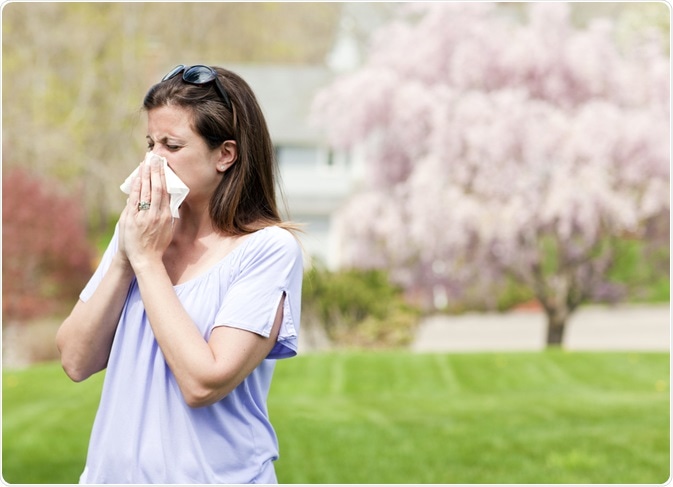It can be difficult traveling with asthma or a serious allergy, but it's not impossible. With the right amount of planning and preparation, along with comprehensive travel insurance, you can make sure your trip is pleasant and uncomplicated.

© Stuart Monk/Shutterstock.com
Traveling with Any Allergy
Whether you have a pet, food, pollen, or mold related allergy, following these simple preparations can ensure a nearly hassle-free trip:
- Talk to your treating physician or healthcare professional and get them to write a letter outlining your allergies and what sets them off, along with a complete list of any medications you are currently taking for them. This list should include every medication, both prescription and over-the-counter, as well as dosage size and frequency.
- It is important to note that some countries control, or even prohibit certain substances, including codeine, which makes certain medicines unable to be taken abroad. Before traveling, first check with the Embassy or Consulate for any country that you are traveling to, and then confirm with your doctor that nothing you are taking contains prohibited substances. A chat with your doctor is also a good time to discuss travel related risks, and how to minimize them.
- Make sure you pack enough of all your medication, including autoinjectors if you use one, and pack as much of it as you are allowed with your carry-on luggage These should all be inside the original packaging as, while it may be inconvenient when traveling, it makes passing through any border controls a lot simpler.
- If you suffer from severe allergies, it is always a good idea to wear a medical identification bracelet.
- Travel insurance is a must, but it is important to check the policy first as it may offer benefits related to medical treatment, or it may distinguish allergies as a pre-existing medical condition. Some insurers automatically cover allergies, although this may come with restrictions. For an easy comparison of different policies use www.travelinsurance.com.au.
- If English is not the first language of the country you are traveling to, carry a wallet-sized card that contains concise information on your allergies – in the local dialect - and how people should respond in an emergency.
Traveling with a Food Allergy
Traveling with a food allergy can be a little more complicated than other types of allergy. This is due to increased planning that goes into it, and even with these measures in place there can still be a considerable risk.
- Before flying consult the airline on their food allergy policy, if they have one, and the possibility of specific allergen-free menus.
- It is possible that the country you are traveling to uses the food you are allergic to in the local cuisine. It is important to research this as traces of nuts or shellfish can be found in many condiments.
- For more direct control over what you eat, consider booking accommodation that has a kitchen where you can prepare your own meals.
Traveling with a Pet, Pollen, or Mold Allergy
Although usually less complicated than a food allergy, these allergies can still be inconvenient, especially when you are meant to be relaxing and enjoying yourself. The following precautions are important:
- Even if no pets are in the passenger cabin, there is still a high chance of you being exposed to pet dander on any flight. Even so, you should still inquire about the presence of pets in the passenger cabin, and request that you are seated as far away from them as possible
- Pollen counts vary according to the season and weather, so before you make any bookings research the local conditions. This will help you choose a travel time when the pollen count is traditionally lower.
- Inquire about allergy-free rooms in any of the hotels you are staying at. If there are none they may be able to put you in a non-smoking room, and possibly have a HEPA filter air cleaning appliance set up in there.
Finally, you shouldn’t see your making special requests as being demanding or difficult. But by explaining the reason for the requests you can make it a lot easier for people to understand, without waiting for them to ask.
About Travelinsurance.com.au
Travelinsurance.com.au have been helping Australians buy travel insurance online since 1999. Their goal is to help you find the best policy for your needs and offer it at a discount price.
Travelinsurance.com.au has been designed to offer you the easiest way to compare and purchase your travel insurance, choosing from the major Australian brands such as; Suresave, QBE, CHI and Aussietravelcover travel insurance.
Sponsored Content Policy: News-Medical.net publishes articles and related content that may be derived from sources where we have existing commercial relationships, provided such content adds value to the core editorial ethos of News-Medical.Net which is to educate and inform site visitors interested in medical research, science, medical devices and treatments.